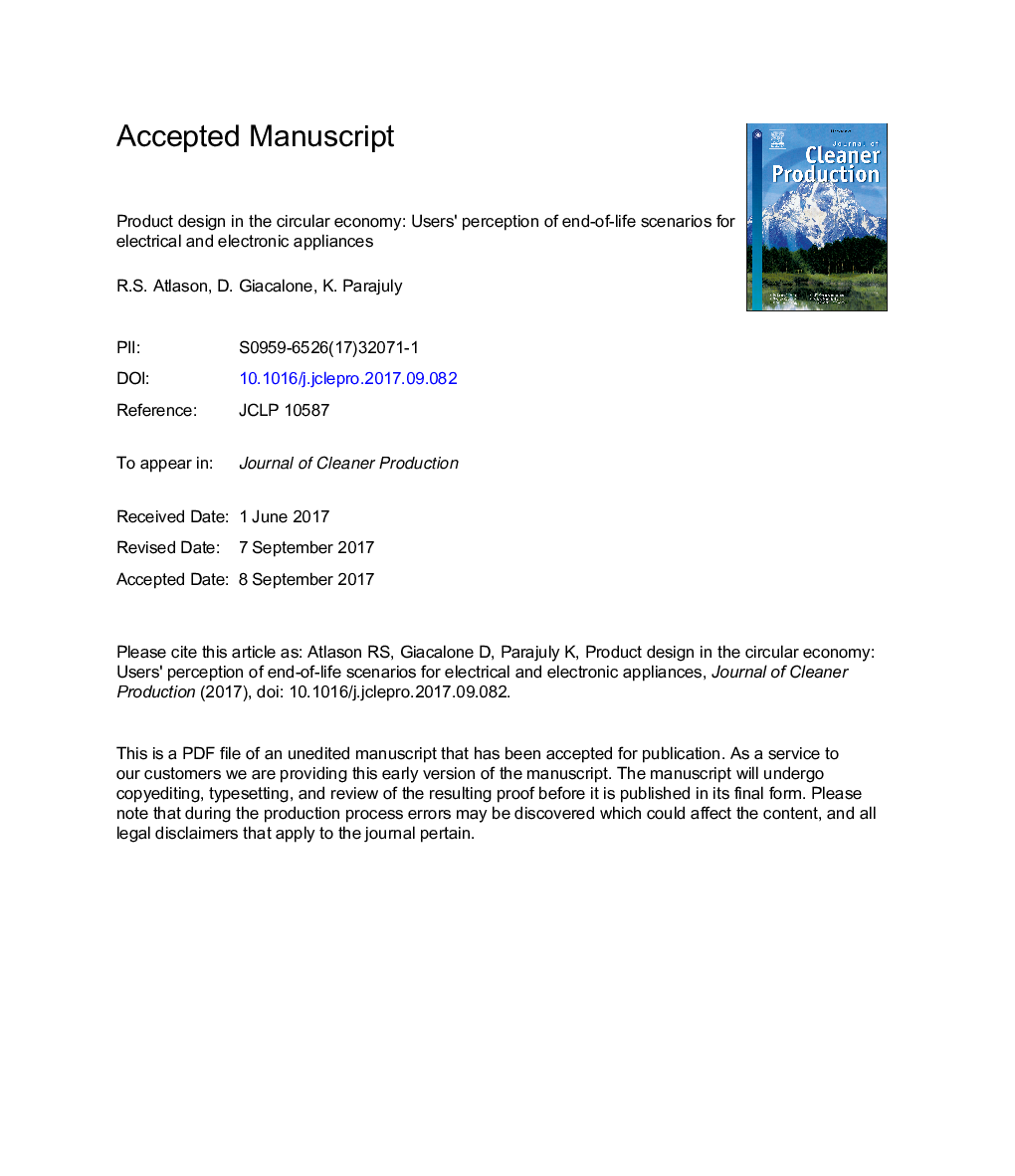| کد مقاله | کد نشریه | سال انتشار | مقاله انگلیسی | نسخه تمام متن |
|---|---|---|---|---|
| 5479870 | 1522086 | 2017 | 23 صفحه PDF | دانلود رایگان |
عنوان انگلیسی مقاله ISI
Product design in the circular economy: Users' perception of end-of-life scenarios for electrical and electronic appliances
ترجمه فارسی عنوان
طراحی محصول در اقتصاد مدور: ادراک کاربران از سناریوهای پایان عمر برای لوازم الکتریکی و الکترونیکی
دانلود مقاله + سفارش ترجمه
دانلود مقاله ISI انگلیسی
رایگان برای ایرانیان
کلمات کلیدی
اقتصاد مدرن، پایان زندگی، طراحی محصول،
موضوعات مرتبط
مهندسی و علوم پایه
مهندسی انرژی
انرژی های تجدید پذیر، توسعه پایدار و محیط زیست
چکیده انگلیسی
In previous years, numerous firms have established environmentally aware strategies with regards to product design, manufacturing and end-of-life (EoL) product management (Cheung et al., 2017). Product developers can choose to design products according to an environmentally favorable EoL scenario. Such strategies may also assist societies in the transition to a more circular economy. However, at the end of a product's useful life, it is uncertain whether the end users will handle the product according to the original intention of the product developers. Situated within this context, this research investigated how end users perceive three EoL scenarios (reuse, recycling and remanufacturing) and two disposal methods (door-to-door collection and delivery at point of purchase) for eight household electrical and electronic products (e-products) spanning a representative range of product categories. To this end, a quantitative Kano survey (N = 146) was used to classify product features related to EoL and disposal methods according to users' preferences. An extension developed by the authors was also deployed to identify differences within user segments in terms of demographic (e.g., age, gender, education level) and relevant psychographic variables (e.g., environmental awareness). Taken collectively, the results showed that the majority of EoL scenarios were actually regarded as attractive features in the Kano framework, meaning that users would be very satisfied with a product that can be disposed of according to a favorable EoL scenarios, but may not have any prior expectations at point of purchase. Reuse potential emerged as the most attractive EoL scenario, suggesting that users' preferences are largely aligned with the concept of circular economy. Interestingly, women were found to prefer all EoL scenarios more than men, and were also more willing to pay a premium price for environmentally friendly e-products. These results suggest that gender may be the most important basis for user segmentation (e.g. in the context of product development), and that products targeted towards women are more likely to enter favorable EoL scenarios.
ناشر
Database: Elsevier - ScienceDirect (ساینس دایرکت)
Journal: Journal of Cleaner Production - Volume 168, 1 December 2017, Pages 1059-1069
Journal: Journal of Cleaner Production - Volume 168, 1 December 2017, Pages 1059-1069
نویسندگان
R.S. Atlason, D. Giacalone, K. Parajuly,
